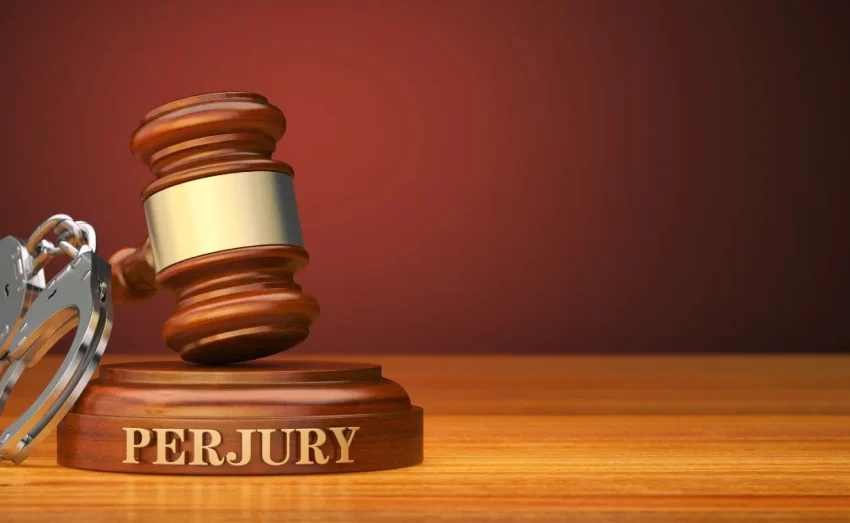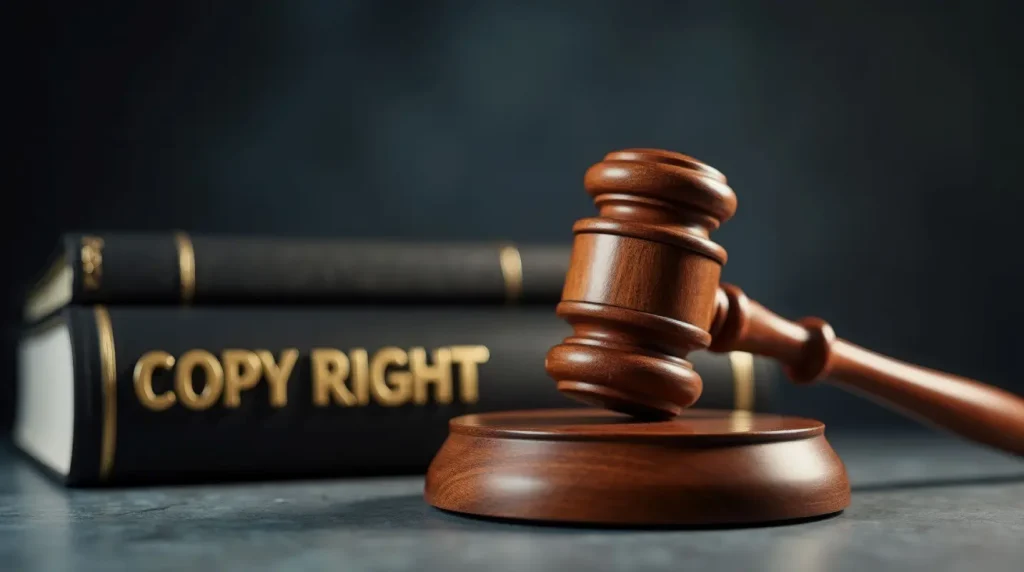What Are Perjury Charges? How They Apply In Copyright Cases

Perjury is a serious criminal offense when an individual deliberately makes false statements under oath in a legal proceeding. The judicial system relies on honesty to ensure fair outcomes, and perjury undermines this principle. In copyright cases, where disputes typically involve complex claims of ownership, infringement, or licensing, the consequences of lying under oath can be severe.
As such, understanding perjury charges and their implications in intellectual property litigation is crucial for anyone involved.
Read on to learn more.
Contents
Understanding Perjury: Definition and Legal Basis
Perjury is the criminal act of knowingly making false statements while under oath in a court of law or during sworn testimony in legal proceedings. Under certain laws, including the U.S. law, perjury is a serious offense that undermines the judicial system’s integrity. Both federal and state statutes impose severe penalties for those found guilty, including fines, probation, and imprisonment.
The legal basis for perjury charges stems from different statutes, which defines perjury as willfully providing false testimony on a material matter after taking an oath to tell the truth. Therefore, it’s important to know that the consequences of lying under oath can be severe, as courts rely on truthful testimony to ensure fair and just rulings. In this case, seeking legal advice is crucial.
Elements Required to Prove Perjury
For a statement to qualify as perjury, several key elements must be established. These include:
- Oath or Affirmation: The false statement must be made under penalty of perjury, such as in court, a deposition, or a sworn affidavit.
- Intentional Falsehood: The speaker must knowingly lie, not merely make an honest mistake or misremember facts.
- Materiality: The false statement must be relevant to the case’s outcome. Minor inaccuracies unrelated to legal proceedings may not qualify.
If these elements are proven beyond a reasonable doubt, the accused may face perjury charges.
Perjury in Copyright Cases: How It Arises
Copyright infringement disputes typically involve sworn testimonies, depositions, and written declarations. False statements in these contexts can lead to perjury allegations. Some common scenarios where perjury may occur in copyright cases include:
False Testimony About Ownership
False testimony about ownership occurs when a party deliberately lies under oath to claim rights over a copyrighted work they didn’t create. For instance, a plaintiff may assert they composed a song, but digital records or witness testimonies later reveal the true creator. Such deceit can lead to perjury charges, undermining the case and resulting in legal penalties, including fines or imprisonment. Courts can scrutinize authorship claims closely to prevent fraudulent assertions.
Misrepresentation of Infringement
Misrepresentation of infringement happens when a defendant falsely denies using copyrighted material despite clear evidence, such as digital footprints or witness accounts. If it’s proven that the denial was intentional, the defendant may face perjury charges. Courts rely on accurate testimony to determine infringement, and deliberate falsehoods distort justice, potentially leading to harsher penalties beyond the original copyright dispute.
Fabricated Evidence or Altered Documents
Fabricated evidence, such as forged copyright certificates or manipulated timestamps, constitutes perjury if submitted knowingly. Courts treat such acts as serious offenses because they corrupt legal proceedings. For example, backdating a document to establish prior creation falsely undermines judicial fairness. If exposed, the offending party may face criminal charges, civil sanctions, and loss of credibility, severely damaging their legal standing.
Legal Consequences of Perjury in Copyright Disputes

Perjury convictions carry significant penalties. These include:
Fines
Perjury convictions often carry substantial monetary penalties, ranging from hundreds to thousands of dollars. These fines can serve as punishment and deterrent, varying amounts based on jurisdiction and case severity. In copyright disputes, courts may impose additional civil penalties beyond criminal fines for false testimony.
Imprisonment
At the federal level, perjury is a felony punishable by up to five years in prison. Judges may impose shorter sentences for first-time offenders or harsher terms for repeat violations. The threat of incarceration emphasizes the justice system’s zero-tolerance approach to lying under oath in copyright cases.
Loss of Credibility
A perjury conviction can permanently tarnish an individual’s reputation in legal and professional circles. Future testimony may be disregarded, and career opportunities, especially in law, media, or creative fields, can be jeopardized. This reputational damage typically outweighs the immediate legal consequences of the conviction.
Case Dismissal or Adverse Judgment
Courts may dismiss claims or rule against parties who commit perjury in copyright cases. This ensures fraudulent litigants don’t benefit from deception. Judges have broad discretion to impose sanctions, including default judgments, making honesty essential in intellectual property disputes.
How to Avoid Perjury in Copyright Litigation
To prevent unintentional false statements, legal professionals can advise clients to review all testimonies and documentation for accuracy before submission thoroughly. If any discrepancies or errors are discovered, they should be corrected and disclosed to the court immediately.
When uncertain about the veracity of a statement, consulting an experienced attorney ensures compliance with legal obligations while maintaining credibility. This proactive approach can help avoid accidental misrepresentations that could lead to perjury allegations while preserving the integrity of the legal process. Legal counsel can also provide guidance on proper courtroom conduct and the potential consequences of giving false information, even inadvertently.
Conclusion
Perjury charges are a serious matter in any legal proceeding, including copyright cases. False statements under oath can lead to criminal penalties, case dismissals, and reputational harm. Understanding the legal implications of perjury can help parties navigate litigation with integrity. Courts rely on truthful testimony to uphold justice, making honesty a critical component of any legal dispute.
By keeping the information mentioned above in mind, individuals and corporations can avoid the severe consequences of lying under oath and ensure fair outcomes in copyright disputes.



